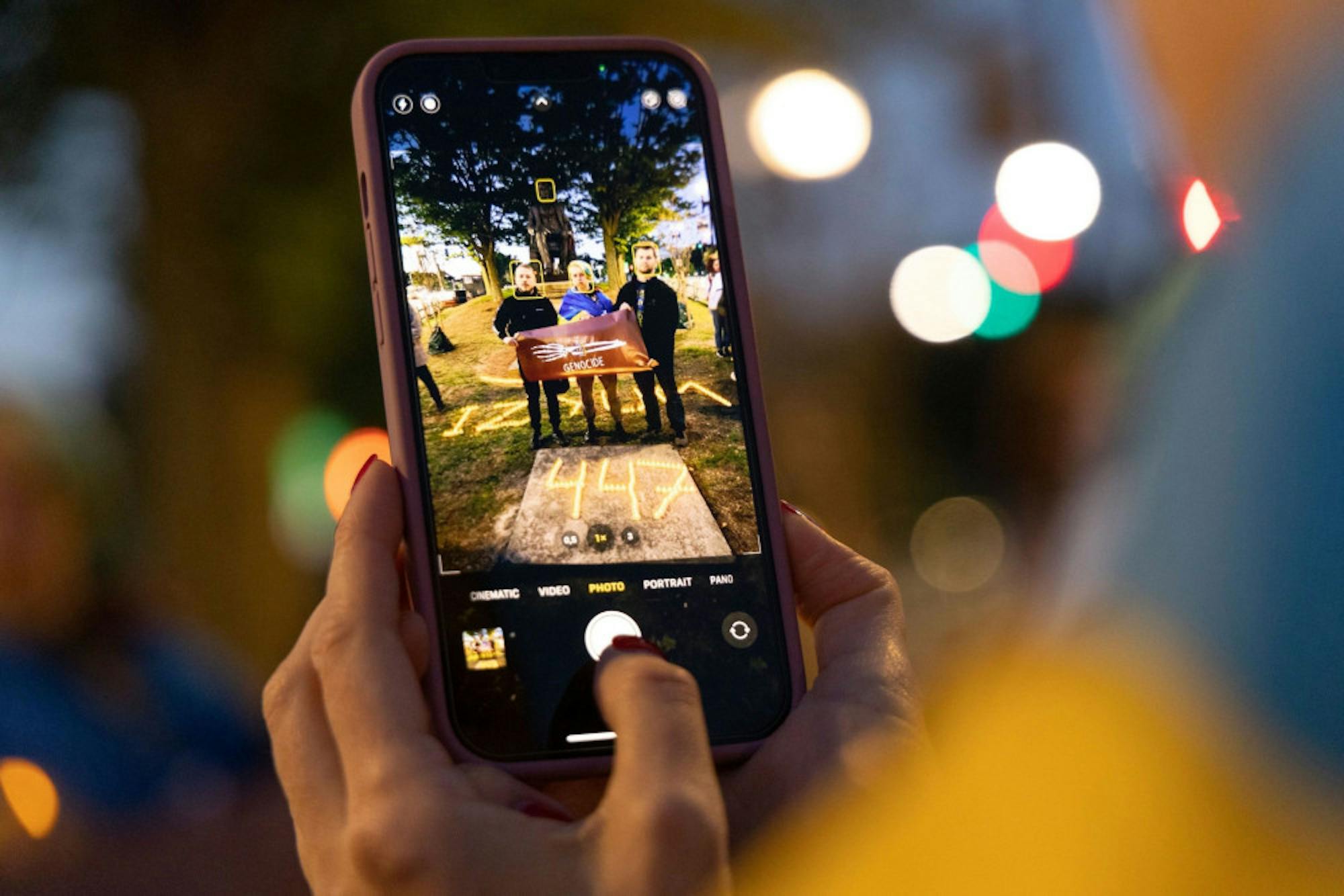All of us know that texting during a class is a strategy for failure and is to be avoided unless something urgent comes up, which happens quite rarely. Or does it? For every Ukrainian student, any text message or phone call can be critical.
Listening to the professor’s explanation of a video editing software, I feel a slight sensation from the phone in my lap. I glance down and skim the message. My boyfriend who lives in Kyiv is asking me if my family is alright. There was another missile strike. Russians hit a power plant in Kryvyi Rih, my home city. I roll my eyes and turn the mobile data off until the end of the class.
It is impossible to emotionally react to each one of these occurrences. Russia attacks Ukraine every day. My panicked messages of “Are you okay?” and questions to my family would not be beneficial to anyone – the answer could change at any moment. Instead, the only way to make a difference is through consistent action: fundraising and drawing the world's attention to the ongoing war.
On Sept. 23, the Ukrainian community in Boston gathered around Charles Sumner Statue and held a candlelight vigil in memory of those killed in recently liberated Izyum, Ukraine. Students from Harvard, Tufts, MIT and other schools, as well as activists and regular Bostonians, lit electric candles in the shape of the number 447 (the number of Ukrainians killed by the Russian army in Izyum — updated as new graves were discovered.) Attendees held posters calling Russia a terrorist state — the name that it frankly deserves — and the war itself genocide. The vigil planners brought bracelets: blue, yellow and black, marked by a trident, the Ukrainian national symbol. There was the same sentence on all of them: “I stand with Ukraine.”
Such initiatives must be organized more often as the war rages on. A senior at Tufts who together with other students fundraised nearly $4,700 for Ukraine earlier this year, spoke about why.
The more of us [that join] together in events like these, the more people will learn about the cause, will learn about the issue and will understand how critical it is for us to unite,” they said. “[It will] show whoever thinks that laws can be violated that this will not be tolerated, and we, in the current and the future generation, those who are currently going to colleges, are not tolerating that and will keep fighting against that.”
It is our duty as future leaders and members of the Tufts community to not turn a blind eye to the crimes the Russian federation continually commits. As a person who is terrified of morning phone notifications as they may bring more horrific news — Ukraine is 7 hours ahead of Massachusetts — I can assure you that any action that reminds society of the ongoing injustice is invaluable. Local initiatives and actions are still large contributors, as donations support crucial aid efforts. Even if it is a bunch of people standing with lights and posters around Harvard Square or a Tufts student wearing a bracelet in blue and yellow, it keeps the conversation going and prevents the Ukrainian struggle from being forgotten by the world.
Editor’s note: Portions of this article have been updated and/or changed to reflect current practices regarding the safety of authors and/or sources as reflected in our policies mentioned here.






